Krishan Janmashtami” is a special Hindu festival celebrated in India. It honors Lord Krishan’s birthday, who is an important god in Hinduism. People celebrate this joyful occasion with prayers, singing, and dancing. They also decorate their homes and temples with colorful decorations. Devotees often visit temples to offer sweets and fruits to Lord Krishan. According to the Hindu calendar, Krishan Janmashtami is celebrated on the eighth day of Bhadrava, which usually falls in August or September. Krishan Janmashtami 2023 will be celebrated on September 6, 2023. The festival brings happiness and togetherness to families and communities, and it is a time of joy and festivities.
| Krishan Janmashtami 2023 Date | September 6 – September 7, 2023 |
| Day | Thursday |
| Jamastami Timings | Nishita Kaal (at around 12 AM) |
| Lord Krishan’s Date of Birth and time | Krishanshtami, Gokulashtami, Shree Jayanti, Saatam Aatham, Ashtami Rohini, Krishan Jayanthi, Shuvo Janmashtami |
| Significance | Lord Krishan’s birth holds a huge significance according to ancient Hindu literature, including Bhagawad Gita and Bhagwat Purana. It celebrates the triumph of good over evil. |
| Also Known as | Krishanshtami, Gokulashtami, Shree Jayanti, Saatam Aatham, Ashtami Rohini, Krishan Jayanthi, Shuvo Janmashtami |
What is the date of Krishan Janmashtami in 2023?
In the Hindu calendar, Krishan Janmashtami in 2023 will be celebrated on the 8th day (Ashtami) of the Krishan Paksha (dark fortnight) in the month of Bhadrapada. It is a significant and joyous occasion for Hindus and falls on the 28th of August in the Gregorian calendar. People will observe this festival with devotion and merriment to honor Lord Krishan’s birth.

What is the timing for Krishan Janmashtami in 2023?
As per the Hindu calendar, the Bhadrapada month will begin on September 6, 2023, at 03:37 PM. The Ashtami Tithi will conclude on September 7, 2023, at 04:14 PM.
- Rohini Nakshatra starts – 06 September 2023, 09:20 am
- Rohini Nakshatra ends – 07 September 2023, 10:25 am
Midnight Puja Time – 12:02 – 12:48 (7 September 2022)
Duration – 46 minutes
How is Krishan Janmashtami Celebrated in India?
Krishan Janmashtami is celebrated with great enthusiasm in India, following Hindu rituals and Vedic culture. The celebration typically involves the following practices:
Fasting: Many people observe a day-long fast on Janmashtami. They refrain from consuming food or water until midnight when Lord Krishan is believed to have been born.
Prayers and Bhajans: Devotees visit temples dedicated to Lord Krishan and offer prayers. They sing bhajans (devotional songs) in praise of Lord Krishan’s divine qualities and leelas (playful activities).
Midnight Celebration: The main festivities begin after midnight to mark the birth moment of Lord Krishan. The atmosphere is filled with joy and devotion as people come together to celebrate.
Dahi Handi: One popular tradition is the “Dahi Handi” event, inspired by Lord Krishan’s mischievous nature. A pot filled with curd (yogurt) and other treats is hung high, and young people form human pyramids to break it. This symbolizes Lord Krishan’s love for dairy products and his playfulness during his childhood.
Ras Leela: In some regions, colorful dances called “Ras Leela” are performed. These depict Lord Krishan’s enchanting dance with the gopis (cowherd girls) in Vrindavan. Ras Leela portrays the divine love and devotion between Lord Krishan and his devotees.
Decorations: Homes, temples, and streets are adorned with vibrant decorations. Rangoli (artwork made with colored powder) and flower arrangements add to the festive ambiance.
Feasting: After the midnight celebration, the fast is broken, and a grand feast is prepared. Delicious and traditional dishes, including sweets like laddoos and kheer, are served as prasad and shared with family and friends.
Reading Scriptures: Devotees read and recite passages from the Bhagavad Gita and other sacred texts related to Lord Krishan’s life and teachings.
Processions: Some regions organize processions with decorated chariots or palanquins carrying idols of Lord Krishan and Radha, where devotees sing and dance along the streets.
Community Gatherings: Janmashtami brings people together, fostering a sense of unity and shared devotion. Families and communities celebrate the occasion collectively, strengthening social bonds.
The Story and Importance Behind the Krishanshtami Celebrations
History
Krishan Janmashtami commemorates the birth of Lord Krishan, who is one of the most beloved and revered deities in Hinduism. According to Hindu scriptures, Lord Krishan was born in Mathura to King Vasudeva and Queen Devaki. The birth took place in a prison cell, and it is said that divine interventions allowed Lord Krishan’s father to carry him safely across the river Yamuna to Gokul, where he was raised by his foster parents, Nanda and Yashoda.
The stories of Lord Krishan’s divine childhood, his playful interactions with the cowherd girls (gopis), and his heroic feats as a young prince have been passed down through generations in Hindu scriptures like the Bhagavata Purana and the Mahabharata. His teachings, especially the Bhagavad Gita, have inspired millions and continue to be cherished by Hindus worldwide.
Significance: Krishan Janmashtami is significant in Hindu culture for various reasons:
Divine Incarnation: Lord Krishan is considered an avatar (incarnation) of Lord Vishnu, who comes to Earth to protect righteousness and uphold goodness.
Symbol of Love and Devotion: Lord Krishan’s stories depict love and compassion. His bond with Radha and the gopis represents deep devotion between the soul and the divine.
Teachings and Leelas: Lord Krishan’s teachings in the Bhagavad Gita offer valuable life lessons. His divine activities (leelas) inspire people to lead virtuous lives.
Universal Appeal: Lord Krishan’s teachings are for everyone, transcending cultural boundaries, and promoting unity and harmony.
Cultural Celebration: Krishan Janmashtami is a religious, cultural, and social celebration. It brings families and communities together in joy and togetherness.
Renewal of Faith: Devotees use this occasion to renew their faith and seek blessings for a fulfilled life.
Krishanshtami Decoration Ideas
Traditional Temple Setup
- Create a mini temple setup at home or in the celebration area.
- Use a decorative backdrop with images of Lord Krishan and Radha.
- Place idols or pictures of Lord Krishan and decorate them with flowers and garlands.
Rangoli Art
- Design intricate rangoli patterns at the entrance or around the temple area.
- Use colorful powdered dyes to create beautiful geometric or deity-themed designs.
Flower Decorations
- Adorn the space with fresh flowers like marigolds, roses, and lotus.
- Make flower garlands to decorate walls, doorways, and the temple setup.
Jhula for Baby Krishan
- Set up a swing (jhula) decorated with flowers and ribbons.
- Place a small idol or picture of baby Krishan on the swing.
Dahi Handi Decoration
- Decorate the Dahi Handi (pot with curd) with bright colors and streamers.
- Hang the pot high and prepare for the traditional “Dahi Handi” event.
Balloon Decorations
- Use colorful balloons to create an inviting and cheerful ambiance.
- Arrange balloon clusters or garlands around the celebration area.
Radha-Krishan Cutouts
- Display life-size cutouts or posters of Radha and Krishan.
- Position them at prominent spots to enhance the festive feel.
Light Decorations
- Use strings of fairy lights or traditional lamps (diyas) to add a warm glow.
- Illuminate the temple area and the surroundings for a magical effect.
Traditional Torans
- Hang decorative torans (doorway hangings) made of mango leaves or fabric.
- They add a traditional touch to the entrance and doorways.
Peacock Feathers
- Decorate with peacock feathers, as they are associated with Lord Krishan.
- Place them around the temple setup or use them in flower arrangements.
Make Krishna Janmashtami Unforgettable with Amazing Gifts, Sacred Puja Items, and Beautiful Decorations
1. Krishan’s Statue
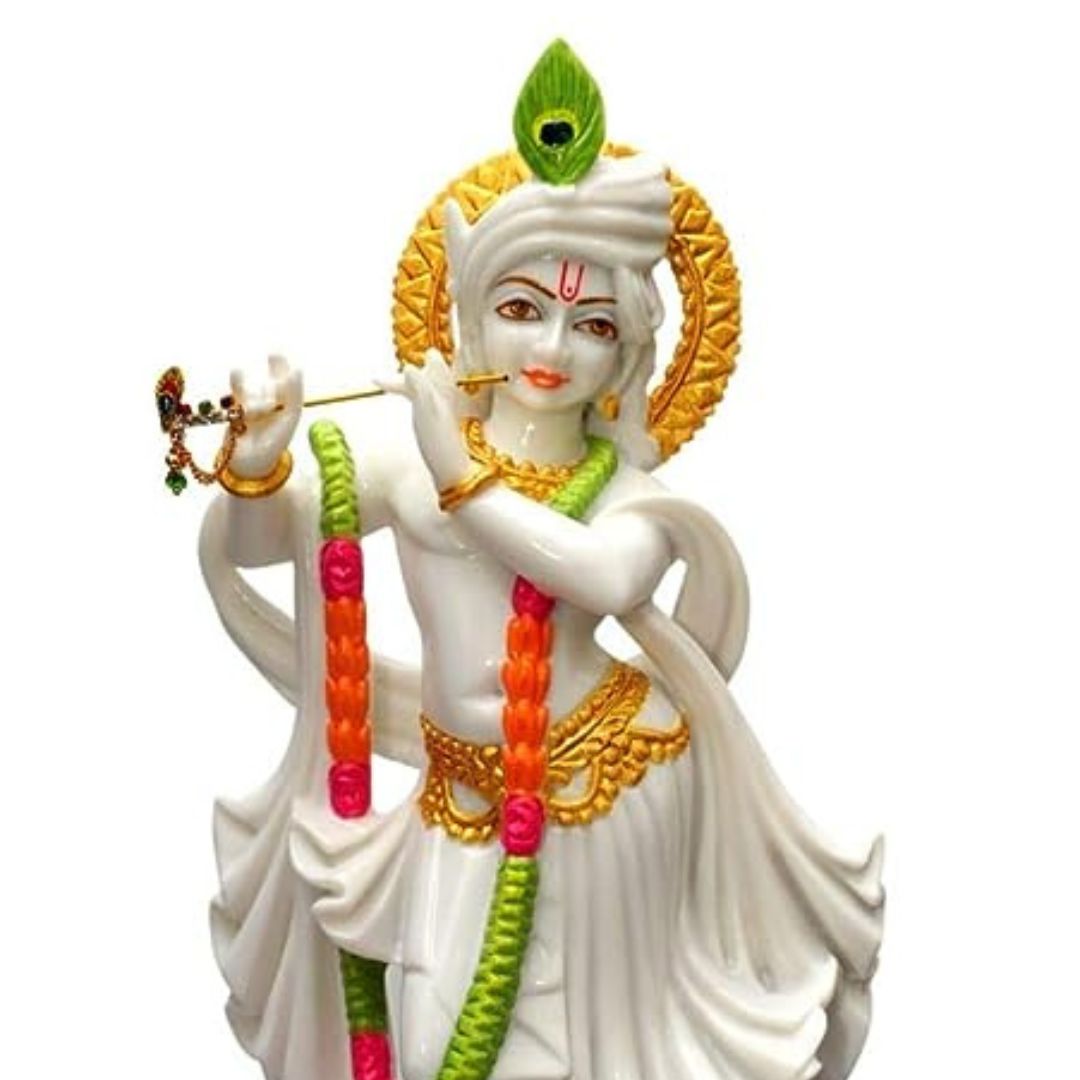
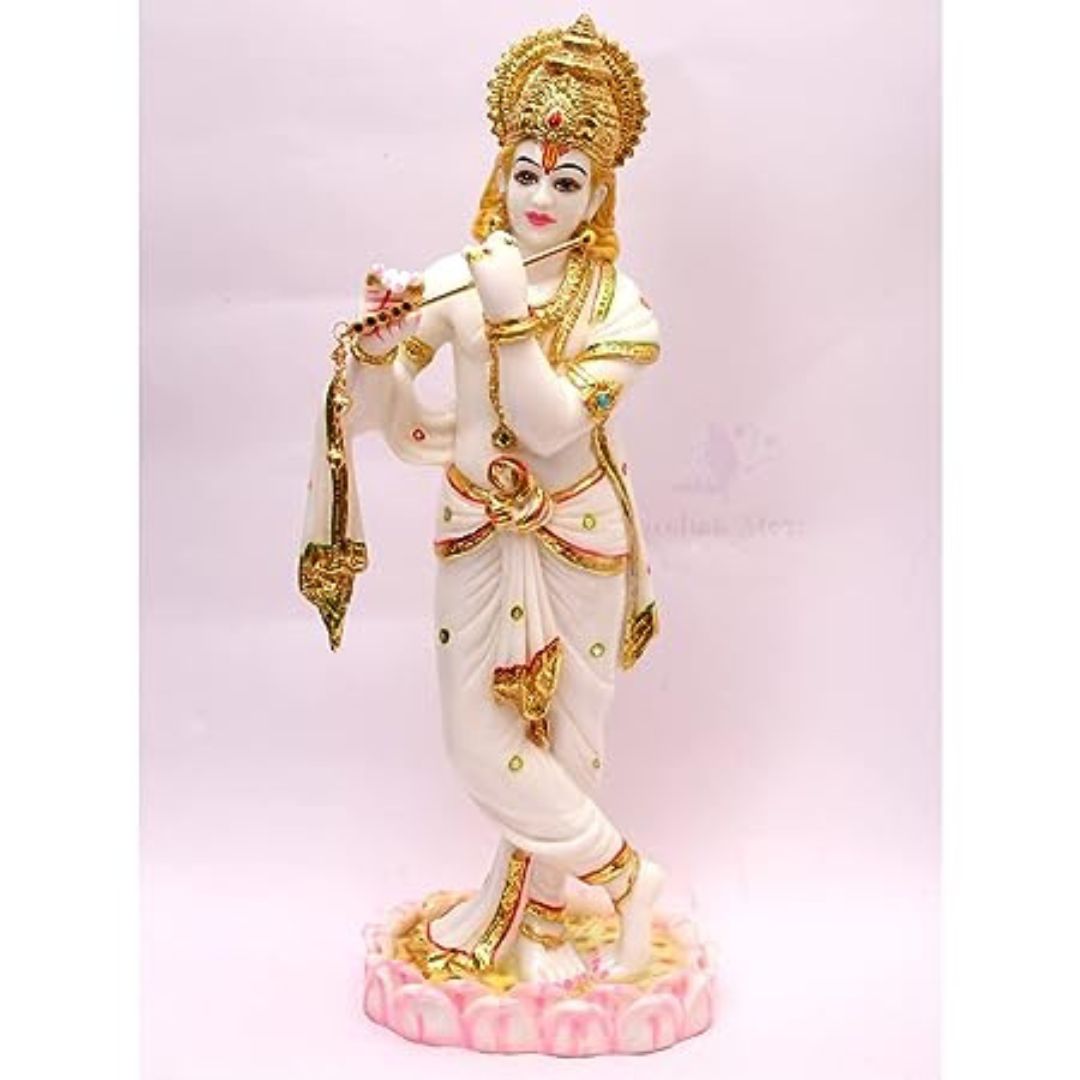
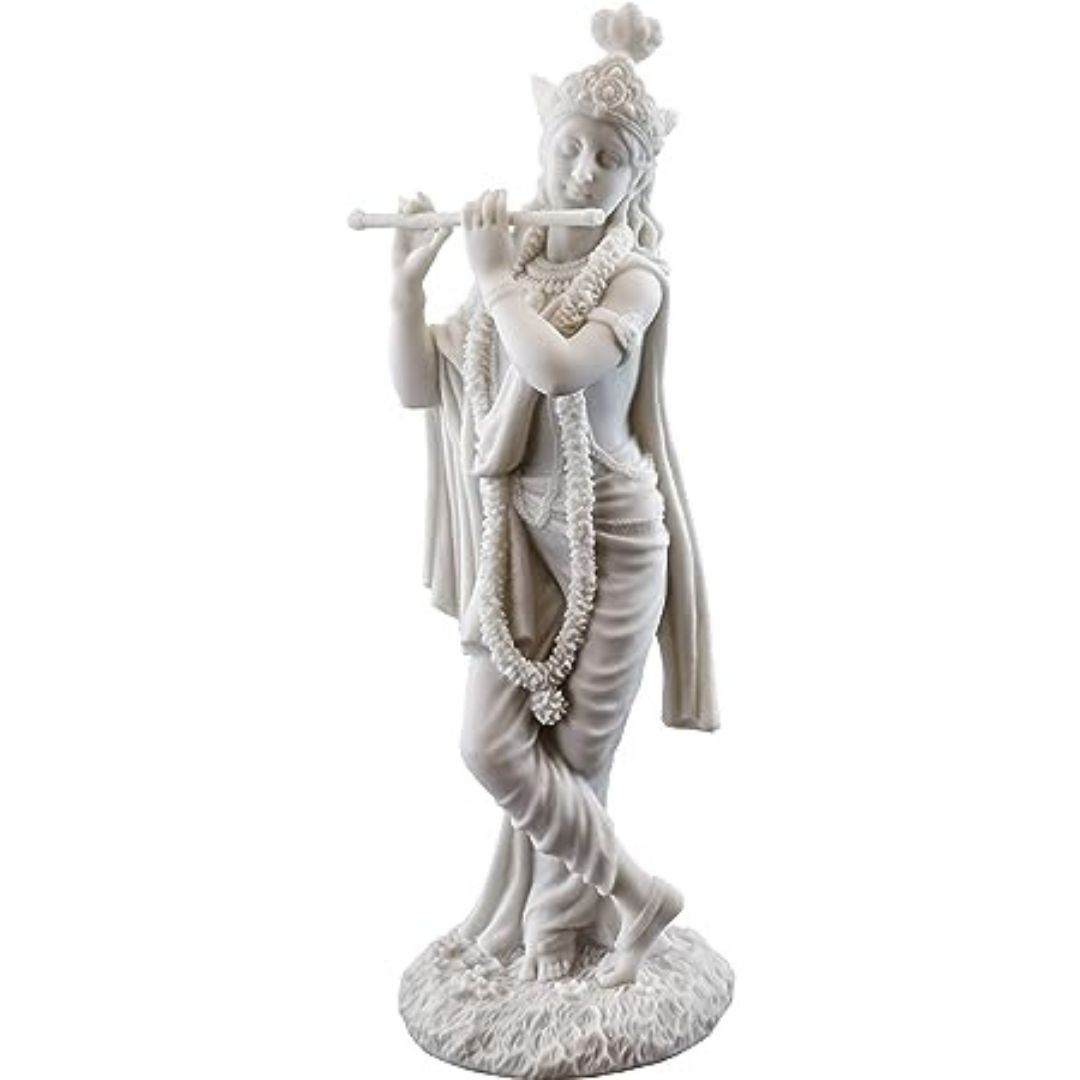
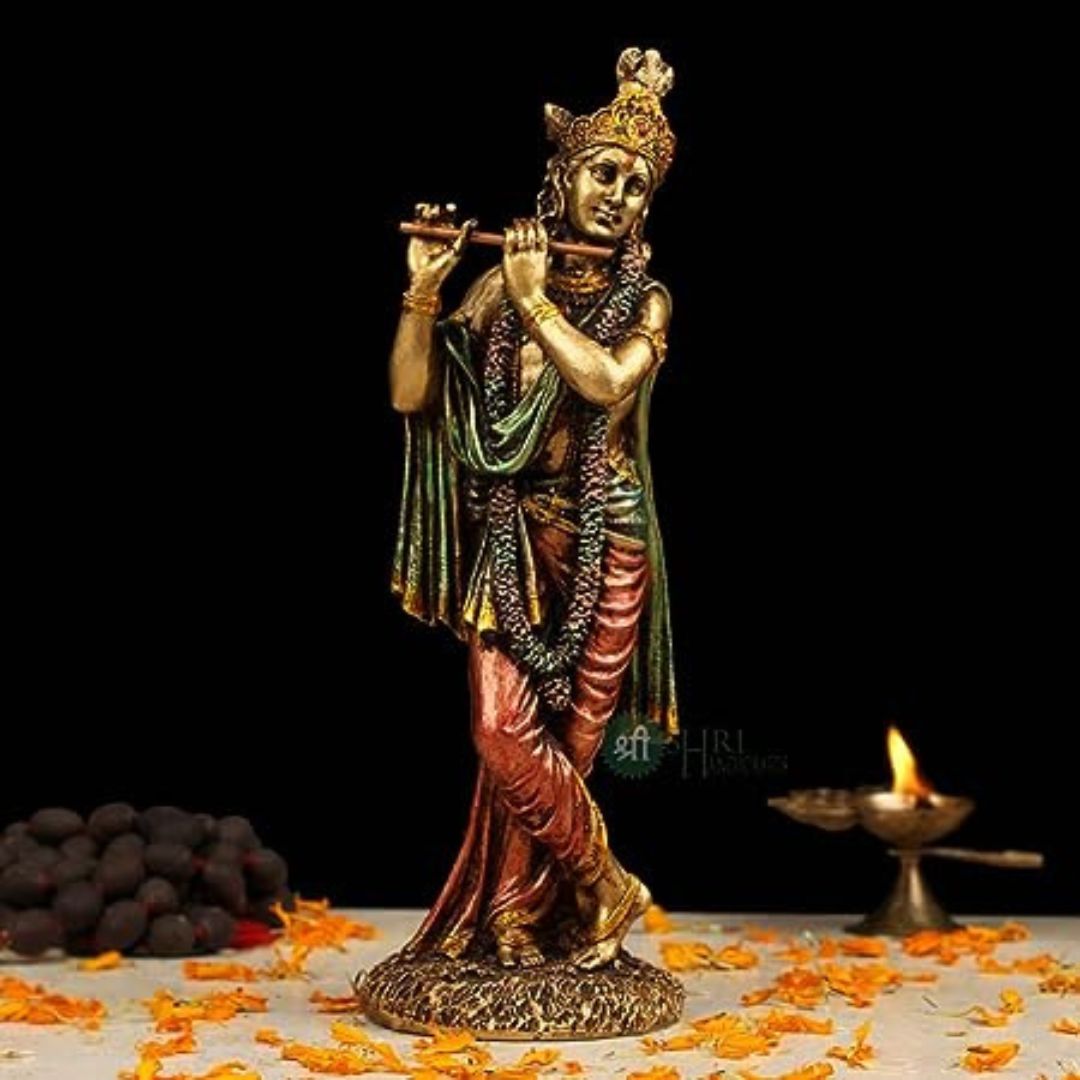
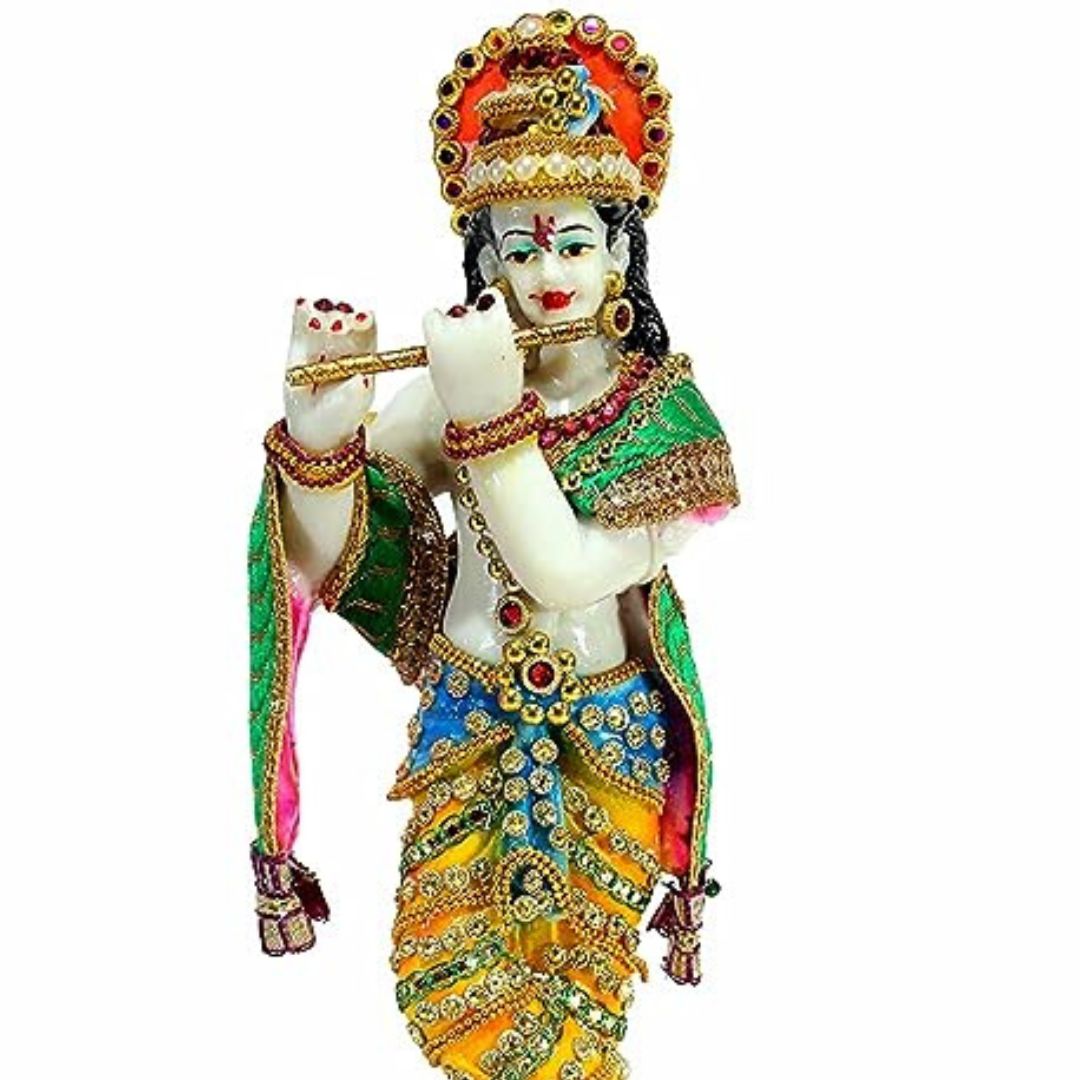
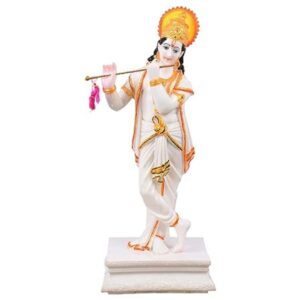
2. Laddu Gopal Jhula
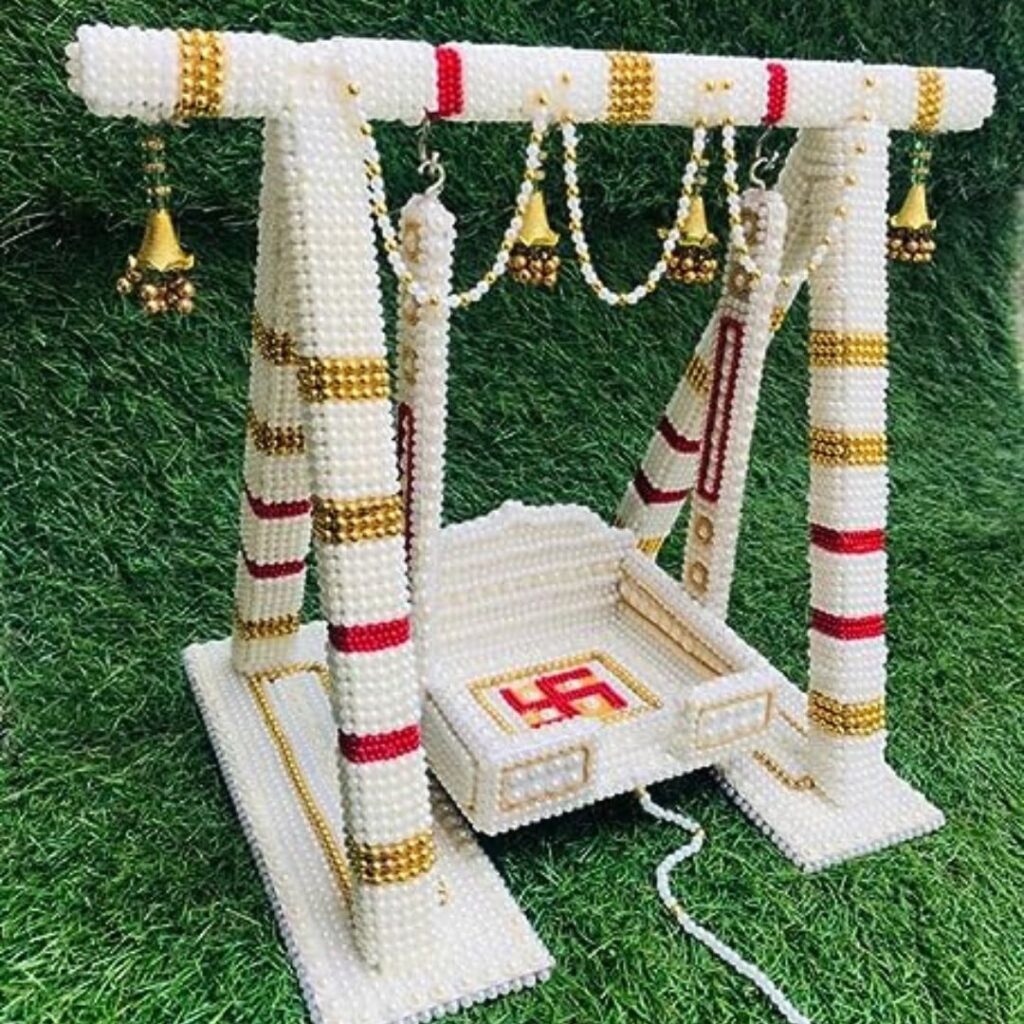

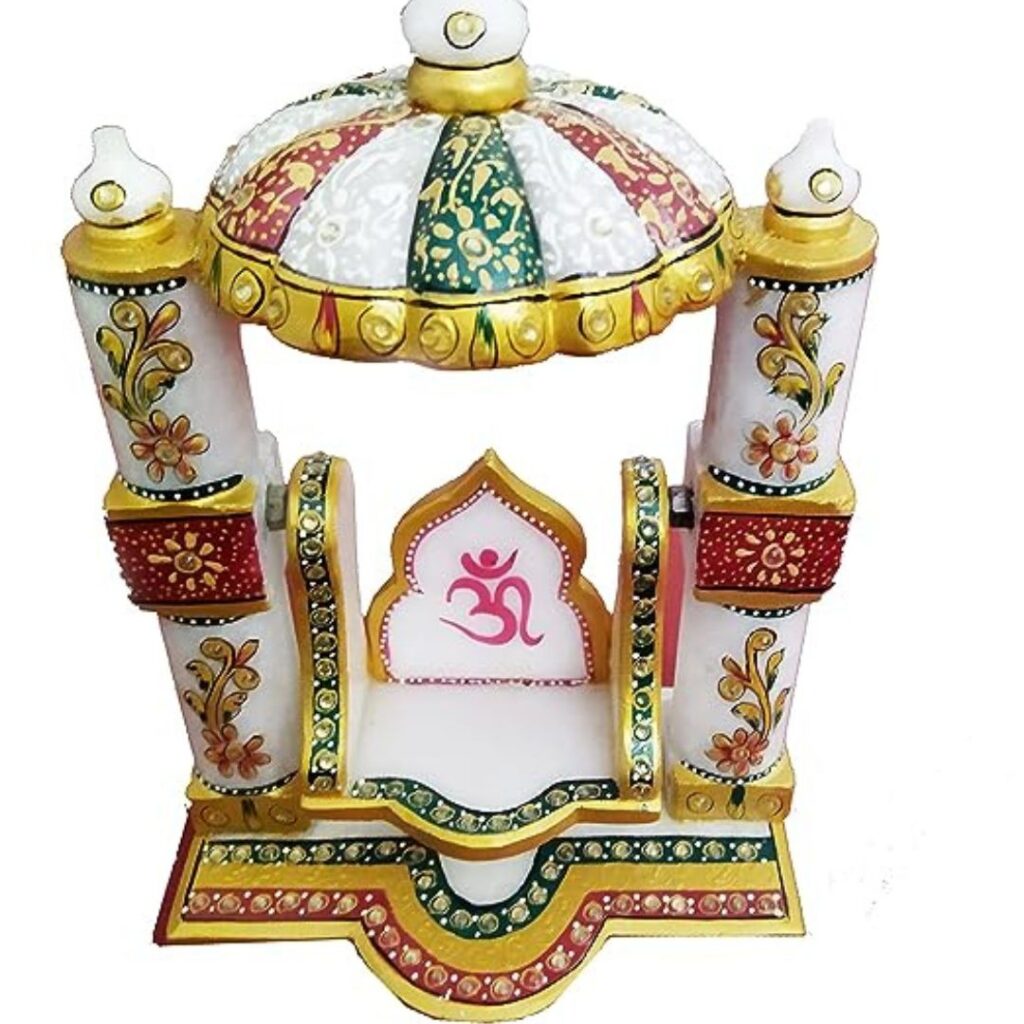

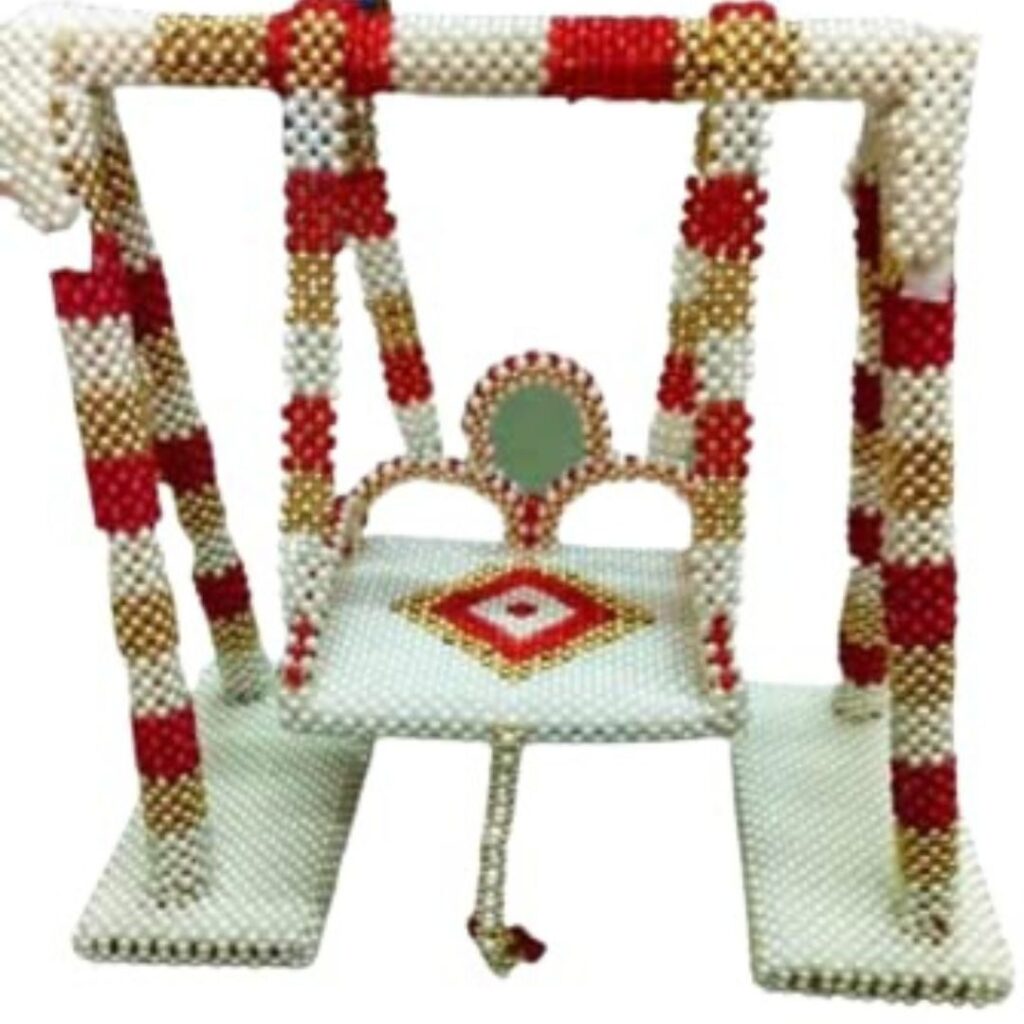
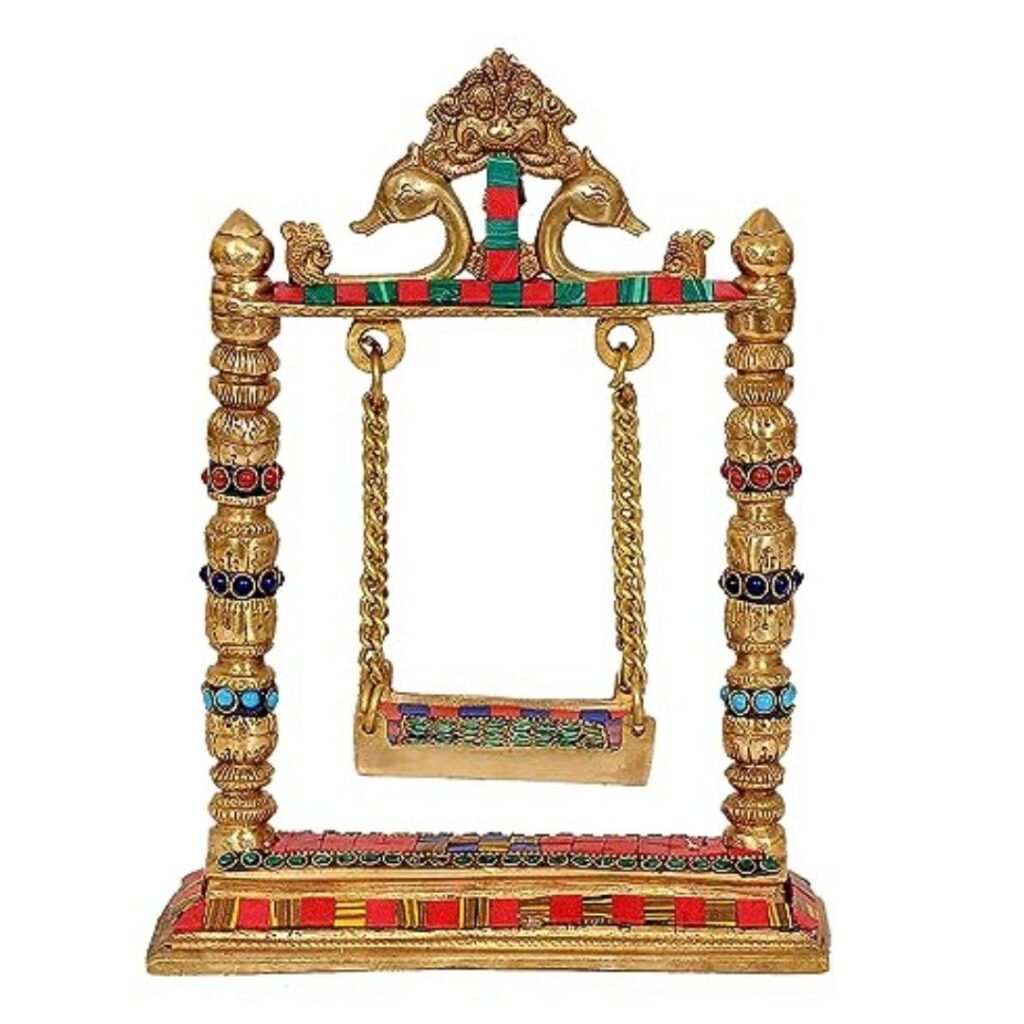
3. Krishna Panel Painting


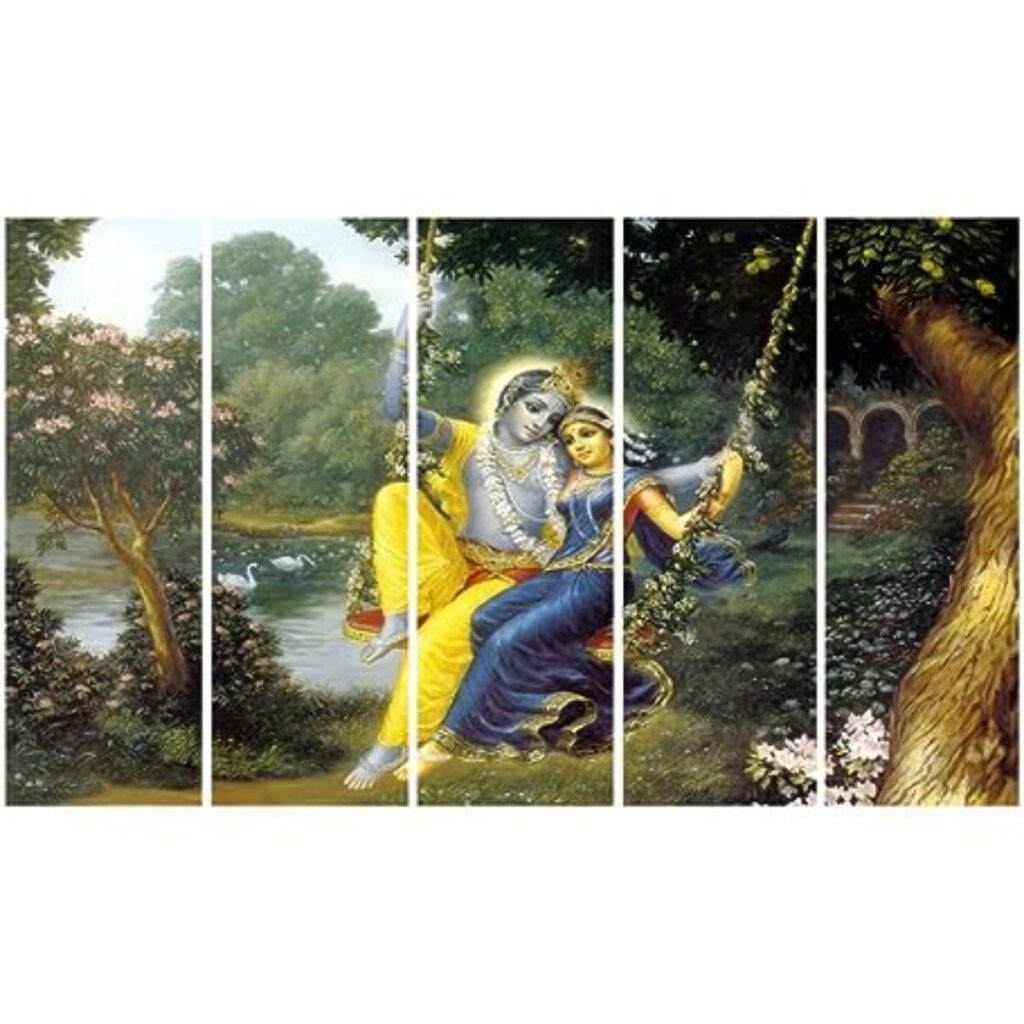

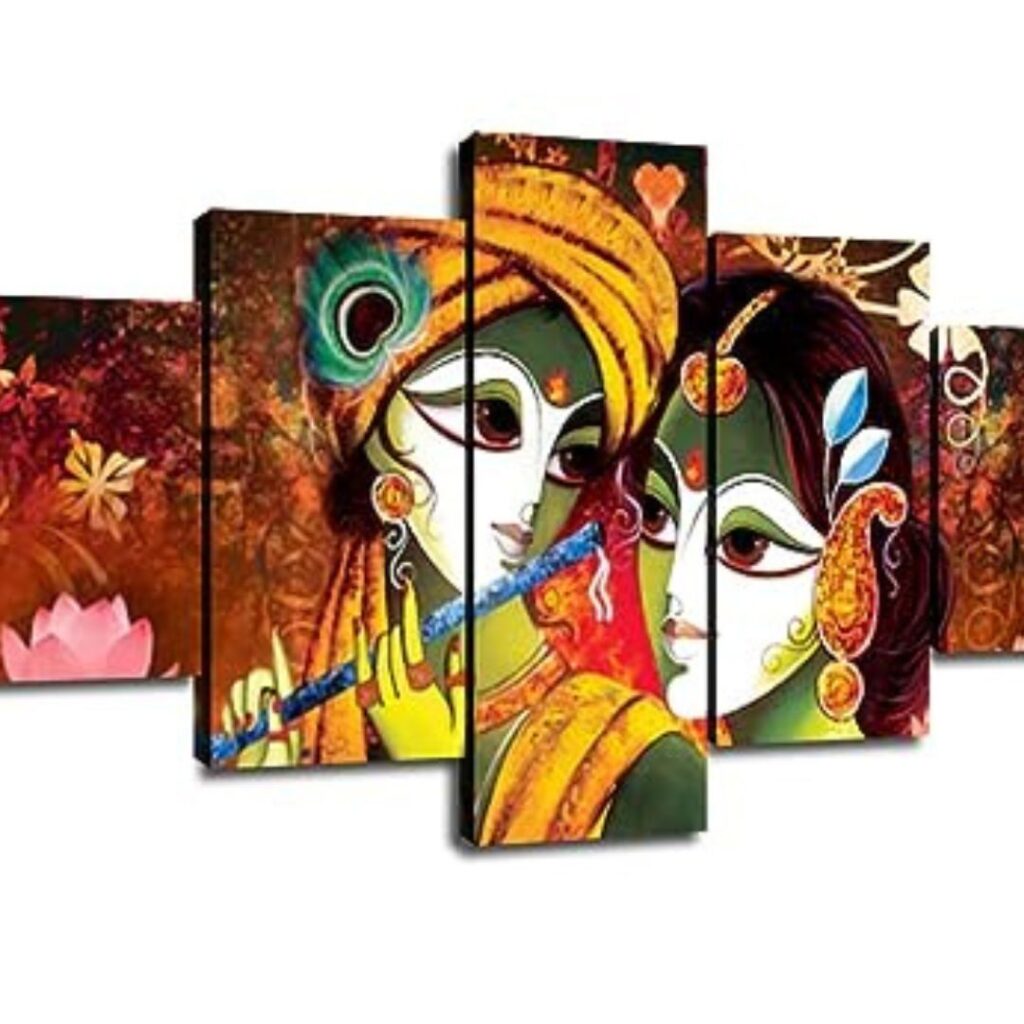

Prasad for Krishan Janmashtami
Significance of Prasad
- Prasad is an essential part of Krishanshtami celebrations in Hindu culture.
- It holds great religious and spiritual significance in the festival.
Preparation of Prasad
- Devotees prepare a variety of delicious dishes and sweets as offerings to Lord Krishan.
- Common Prasad items include laddoos, kheer, peda, and other traditional dishes.
- Fruits are also offered as a part of the Prasad.
Offering to Lord Krishan
- During the festival, the Prasad is beautifully arranged and offered to the deity in temples and homes.
- It is presented with devotion and reverence to honor Lord Krishan’s divine presence.
Receiving Lord Krishan’s Blessings
- Consuming the Prasad is believed to bring blessings and grace from Lord Krishan.
- It is considered auspicious and is thought to bestow prosperity and well-being on the devotees.
Sharing Prasad with Devotees
- After the midnight celebration, the Prasad is distributed among the devotees present in the temple or home.
- Sharing the Prasad fosters a sense of community and togetherness among the celebrants.
Spreading Joy and Unity
- The act of sharing Prasad with family, friends, and neighbors strengthens social bonds.
- It symbolizes the spirit of love, devotion, and harmony thatKrishanshtami embodies.
Countries Celebrating Krishan Janmashtami
- Nepal
- Bangladesh
- Pakistan
- Sri Lanka
- United States
- United Kingdom
- Canada
- Australia
- Mauritius
- South Africa
- Singapore
- Malaysia
- Trinidad and Tobago
- Fiji
- Guyana
Top Destinations for Celebrating Krishan Janmashtami This Year
Mathura and Vrindavan, Uttar Pradesh: These cities are closely associated with Lord Krishan’s life and are the most popular destinations to celebrate Krishan Janmashtami. The festivities here are grand and vibrant, with temples beautifully decorated, and processions taking place.
Dwarka, Gujarat: Dwarka is believed to be the ancient kingdom of Lord Krishan. The city’s temples and the Dwarkadhish Temple, in particular, offer a wonderful experience during the festival.
Nathdwara, Rajasthan: Home to the famous Shrinathji Temple, Nathdwara celebrates Krishan Janmashtami with enthusiasm and devotion. The temple’s festivities attract thousands of devotees.
Udupi, Karnataka: Known for the Udupi Krishan Temple, this coastal town celebrates Janmashtami with traditional rituals and cultural events.
Puri, Odisha: The Jagannath Temple in Puri observes Krishan Janmashtami with elaborate ceremonies and celebrations, making it a memorable experience.
Mayapur, West Bengal: The International Society for Krishan Consciousness (ISKCON) headquarters in Mayapur hosts grand celebrations with devotees from around the world.
Mumbai and Pune, Maharashtra: These cities have significant ISKCON temples and other places of worship where Janmashtami is celebrated with devotion and fervor.
Delhi: The capital city hosts numerous temples and cultural events during Krishan Janmashtami, providing a unique experience of the festival.
Haridwar and Rishikesh, Uttarakhand: These holy cities on the banks of the Ganges offer spiritual celebrations and enchanting experiences during Janmashtami.
Bengaluru, Karnataka: The ISKCON temple in Bengaluru is known for its grand Janmashtami celebrations, attracting locals and tourists alike.
Conclusion
In summary, Krishan Janmashtami is a joyful celebration of Lord Krishan’s birth. It brings people together in reverence and devotion, inspiring with his timeless teachings and values. This cherished festival holds a special place in Hindu traditions.
